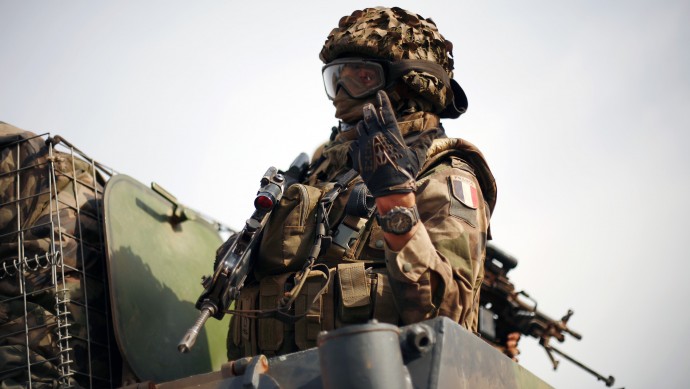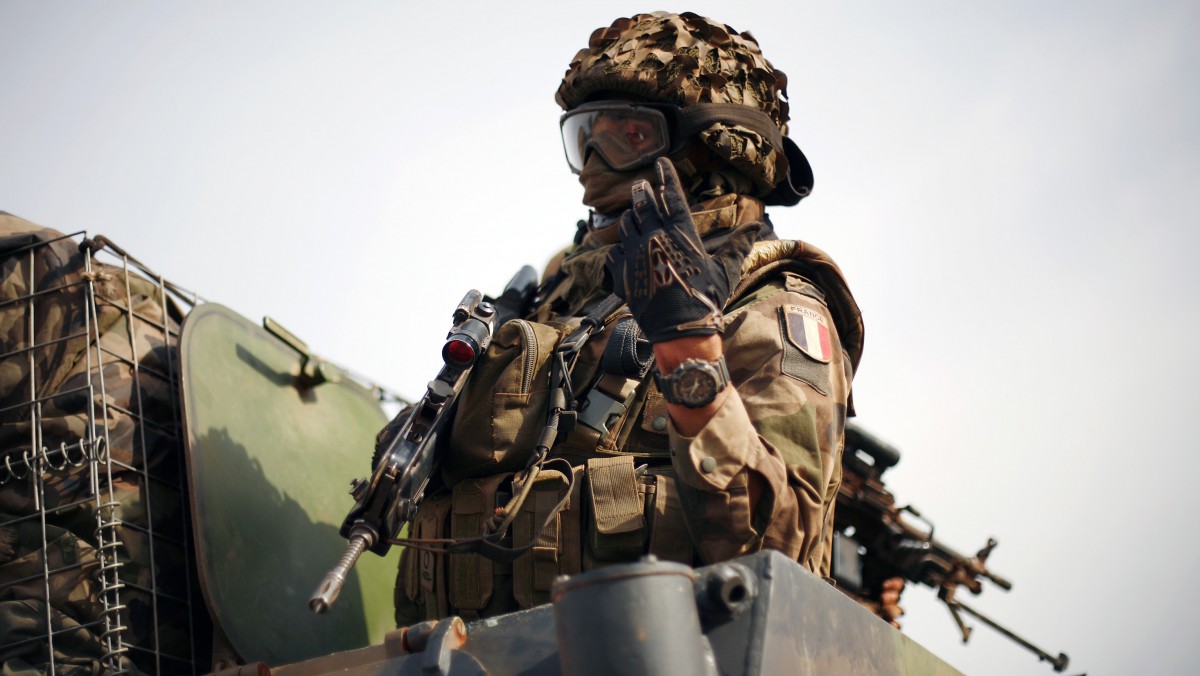
(NEW YORK) MintPress – The United States has officially entered the fray in Mali, with the military acknowledging on Tuesday that it had begun airlifting French troops and equipment from a base in southern France to the Malian capital of Bamako.
According to Tom Saunders, a spokesman for the U.S. Africa Command at its headquarters in Stuttgart, Germany, two flights arrived on Monday and a third on Tuesday, and the airlift will continue for the next several days.
Earlier this month, France launched what it calls Operation Serval, backing the Malian government in the latest escalation of its conflict with Islamist militants who have overrun the northern half of the former French colony.
On Tuesday, the French Defense Ministry said its troops had helped government forces take control of two important central towns, Diabaly, about 275 miles north of Bamako, and Douentza, roughly 300 miles northeast of the capital.
Defense Minister Jean-Yves Le Drian hailed the advance as “a clear military success for the government in Bamako and for French forces intervening in support of these operations.”
The Islamist fighters overran Diabaly a week ago, the closest they have come to Bamako so far in an aggressive surge this month.
France, worried that they could take the capital, home to many of its citizens, quickly stepped in with airstrikes against the militants.
It said it is aiming to send 2,500 soldiers to Mali, with 2,159 deployed so far.
In an interview with the French radio station RFI, Gen. Ibrahima Dahirou Dembele, the Malian Army chief of staff, said his forces were seeking “the total liberation of northern Mali.
“If the support remains consistent, it won’t take more than a month to free Gao and Timbuktu,” he said, referring to northern cities that have been occupied by the Islamists since early 2012.
Radical roots
“These guys, they are vicious,” Diabaly’s mayor, Oumar Diakite, told the New York Times. “As you can see, a poor country like Mali, they have come to attack us.”
The crisis began last January, when Tuareg fighters, led by the National Movement for the Liberation of Azawad (MNLA), launched a separatist uprising in northern Mali.
Many of them had been fighting alongside Col. Gadhafi’s forces in Libya and returned home with arsenals of weapons.
In March 2012, junior officers angry at the government’s failure to put down the rebellion, staged a military coup, leading to sanctions and an embargo by the Economic Community of West African States.
The MNLA quickly took control of the north, declaring independence of Azawad. But the Islamist groups who had helped the MNLA then turned on the Tuareg and took control of the north, swiftly imposing a strict form of Shariah law and terrorizing the population with public whippings, stonings and amputations.
Last month, the top American military commander in Africa, Gen. Carter F. Ham, said that al-Qaida’s affiliate in North Africa, al-Qaida in the Islamic Maghreb (AQIM), was operating terrorist training camps in northern Mali.
He told the Homeland Security Policy Institute at George Washington University that the group had used the momentum gained since seizing control of the north to increase recruiting across sub-Saharan Africa, the Middle East and Europe.
AQIM is now considered one of the best armed and wealthiest of the al-Qaida franchises in the world, maintained Ham, largely because of millions of dollars gained in kidnapping ransoms, drug proceeds and illicit trafficking in fuel and tobacco.
Indeed, AQIM is estimated to have amassed as much as $90 million or more in ransoms paid for Western hostages over the past decade alone.
And Abdelkader Abderrahmane, a senior researcher at the Institute for Security Studies in Addis Ababa, Ethiopia, recently wrote that according to the French Secret Service, the AQIM has recently received financial support from Qatar.
“As each day goes by, al-Qaida and other organizations are strengthening their hold in northern Mali,” he said.
“There is a compelling need for the international community, led by the Africans, to address that.”
Catch-22
But American officials have warned that involvement could stir anti-Western sentiment and provoke terrorist attacks, which is precisely what happened when militants stormed a gas facility in Algeria last week, resulting in the deaths of at least 37 foreign hostages.
Meanwhile, hardline Salafist leaders in Morocco have condemned the French military intervention in Mali, labelling all Muslims who participate in it “ungodly.”
“No Islamic state should provide facilities, such as the use of airspace, to non-Muslims against a Muslim state. It is forbidden by Islam,” wrote Omar Haddouchi, a well-known Salafist, on his Facebook page last week.
Morocco and Algeria have authorised overflights by French fighter planes.
Sheikh Mohamed Rafiki, another Moroccan Salafist, wrote on his Facebook page that there was “no case for supporting the occupying forces in their aggression against Muslim countries.”
“No foreigner has the right to interfere in the internal affairs of a Muslim state, whatever the reason,” stated Salafist leader Hassan Kettani.
All three, along with another prominent militant, were sentenced to 10 to 30 years in jail for inciting violence linked to the Casablanca bombings in May 2003, when 45 people were killed, including the 12 suicide bombers. All four were later pardoned.
Vocal opposition to the intervention could be spreading. Egyptian President Mohamed Morsi has also condemned France’s actions.
“We never accept military intervention in Mali, because this will exacerbate conflict in the region,” he said on Tuesday at an Arab economic summit in Saudi Arabia.
While the host country did not comment on Mali, Riyadh is known to be backing Salafists who are fighting alongside the opposition Free Syrian Army to topple President Bashar Assad.


